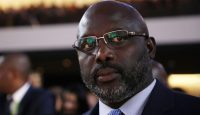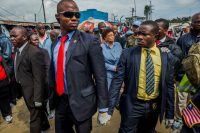
Liberia has a new president: is there renewed hope for justice?
In Liberia, there is a conflict about what the conflict was about. The Truth and Reconciliation Commission (TRC) 2009 final report, however, determined that the history of political violence and Liberia’s destructive civil wars (in 1989-1997 and 1999-2003) are attributable to the origin of the nation-state. Liberia is Africa’s first Black Republic. It was never formally colonised but conceived under problematic circumstances. Despite this pertinent finding, discussions over what led to the civil wars abound. Some maintain that it was caused by inter-ethnic conflict. Conspiracy theorists blamed it on the machination of the Americo-Liberian elites and how they upended indigenous people’s rule in the late 1980s through the plot of a civil war.… Seguir leyendo »















